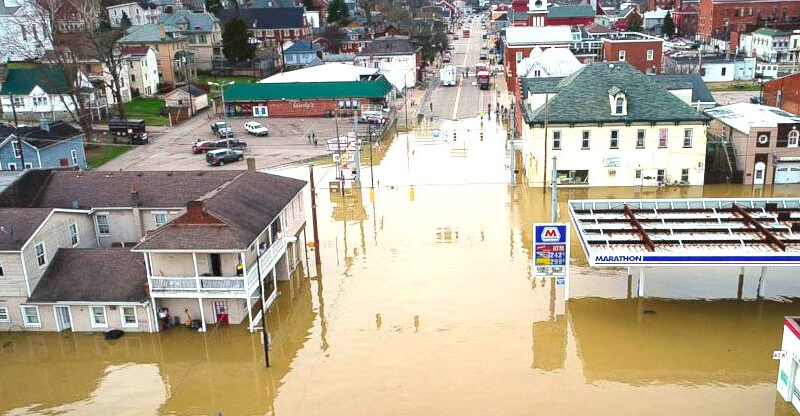The U.S. Congress passed a short-term reauthorization of the National Flood Insurance Program (NFIP) through Feb. 2 2024, its also was included in the U.S. House of Representatives continuing resolution.
The NFIP’s current expiration date, along with the rest of the federal government, was set for November 17 at 11:59 p.m. if Congress did not act.

We’re grateful that we avoided a lapse in the program. However, with this the 27th short-term extension, I remain concerned that our existing and potential policyholders will lose confidence in the NFIP
David Maurstad, senior executive of the NFIP
“Meanwhile, we faithfully continue our work calling on Congress to consider FEMA’s proposed reforms of the program that I believe will help us close the flood insurance gap and reduce needless disaster suffering from the country’s number one natural disaster.”, David Maurstad says.
“FEMA and Congress have never failed to honor the flood insurance contracts in place with NFIP policyholders”, FEMA said in a statement.
“If the NFIP’s authorization had lapse, FEMA still have authority to ensure the payment of valid claims with available funds. Nationwide, the National Association of Realtors estimates that a lapse might impact approximately 1,300 property sales each day, roughly 40,000 closings per month”.

The level of damage from recent catastrophic storms makes it clear that FEMA needs a holistic plan to ready the nation for managing the cost of flooding under the NFIP.
“NFIP reauthorization is an opportunity for Congress to take bold steps to reduce the complexity of the program and strengthen the NFIP’s financial framework so that the program can continue helping individuals and communities take the critical step of securing flood insurance”, FEMA said.
The most recent long-term extension of the NFIP was a five-year reauthorization that expired in 2017 when Congress was unable to agree on reforms. This most recent bill marks the 27th short-term extension the program has received since then.
The NFIP also needs investment in agent training, updated mapping and a means-tested affordability program.
More than $1.2 billion has gone to National Flood Insurance Program policyholders to help their Hurricane Ian recovery, with over 46,000 policyholders having filed claims following the storm’s landfall.
More than $237 million of those dollars were in the form of advance payments, where policyholders could receive up to $20,000 after filing a claim. Over 10,000 policyholders received advance payments as they worked their claims.
FEMA now estimates Hurricane Ian could potentially result in NFIP claims losses between $3.7-$5.2 billion. The losses include flood insurance claims received from five states, with the majority of claims coming from Florida.
Congressional passage of the resolution avoids the threat of a government shutdown for the rest of this year and gives legislators time to negotiate annual spending bills. Twelve appropriations bills need to be passed by each chamber and then conferenced to reconcile differences, primarily on the overall spending levels.
The NFIP’s debt, premium rates and resilience are just some of the areas that need comprehensive reform, said Diane Horn, a flood insurance and emergency management analyst for the Congressional Research Service.
The National Flood Insurance Program (NFIP) is managed by the FEMA and is delivered to the public by a network of more than 50 insurance companies and the NFIP Direct.
Floods can happen anywhere — just one inch of floodwater can cause up to $25,000 in damage. Most homeowners insurance does not cover flood damage. Flood insurance is a separate policy that can cover buildings, the contents in a building, or both, so it is important to protect your most important financial assets — your home, your business, your possessions.
The NFIP provides flood insurance to property owners, renters and businesses, and having this coverage helps them recover faster when floodwaters recede. The NFIP works with communities required to adopt and enforce floodplain management regulations that help mitigate flooding effects.
Flood insurance is available to anyone living in one of the almost 23,000 participating NFIP communities. Homes and businesses in high-risk flood areas with mortgages from government-backed lenders are required to have flood insurance.
While House Republicans remain deeply divided on fiscal policy, which has already derailed several of the appropriations bills in the House, the Senate is expected to complete their work on the bills more smoothly.
Earlier, the U.S. House of Representatives passed the resolution in a 336-95 vote. These were approximately the same margins that passed a continuing resolution in September and doomed Rep. Kevin McCarthy’s term as Speaker of the House.
The resolution has been referred to as a “laddered” approach, which means it is a two-step and will fund some federal agencies through Jan. 19, 2024, and some through Feb. 2, 2024.







